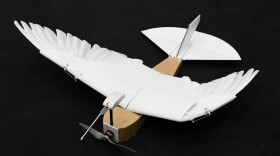
Merrit Kennedy
Merrit Kennedy is a reporter for NPR's News Desk. She covers a broad range of issues, from the latest developments out of the Middle East to science research news.
Kennedy joined NPR in Washington, D.C., in December 2015, after seven years living and working in Egypt. She started her journalism career at the beginning of the Egyptian uprising in 2011 and chronicled the ousting of two presidents, eight rounds of elections, and numerous major outbreaks of violence for NPR and other news outlets. She has also worked as a reporter and television producer in Cairo for The Associated Press, covering Egypt, Yemen, Libya, and Sudan.
She grew up in Los Angeles, the Middle East, and places in between, and holds a bachelor's degree in international relations from Stanford University and a master's degree in international human rights law from The American University in Cairo.
-
Shortly after the attack last August, Patrick Wood Crusius allegedly told police he had driven to the store intending to kill "Mexicans."
-
"The main reason for this declaration is not because of what is happening in China but because of what is happening in other countries," said World Health Organization head Tedros Adhanom Ghebreyesus.
-
One of the biggest changes is that the Department of Transportation would no longer require airlines to consider emotional support animals as service animals, as they have in the past.
-
Transportation in and out of the city of 11 million is being shut down as cases of the coronavirus are being reported throughout China and abroad. Wuhan is believed to be the contagion's epicenter.
-
The individual had returned to his home in Washington state after a visit to Wuhan, China, where the virus was discovered in December.
-
The freshman lawmaker says she felt that it was particularly important for her to speak out about her condition because her hairstyle, Senegalese twists, has become a part of her political brand.
-
Birds change the shape of their wings far more than planes. The complexities of bird flight have posed a major design challenge for scientists trying to translate the way birds fly into robots.
-
Prime Minister Viktor Orbán is fiercely opposed to immigration and has said that boosting national fertility rates is his preferred way to counter the population downturn and risk of labor shortages.
-
Caskets holding the bodies of Maj. Gen. Qassem Soleimani and others killed in a U.S. drone strike last week in Iraq were paraded though the streets of Tehran as mourners chanted "death to America."
-
Security forces fired tear gas at demonstrators as President Trump called on Iraq to intervene with force. The protesters are angry about a series of U.S. airstrikes on an Iranian-backed militia.










